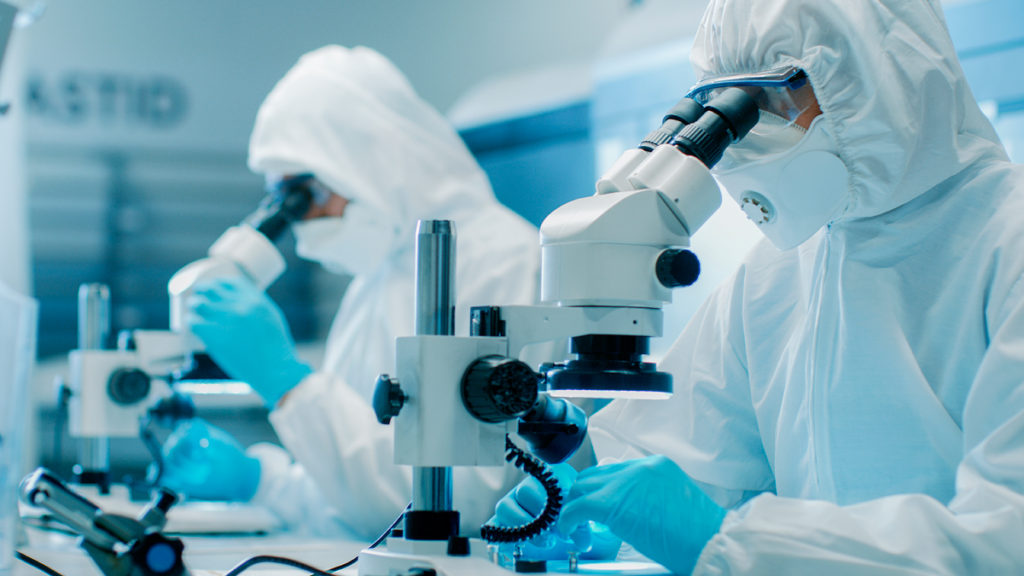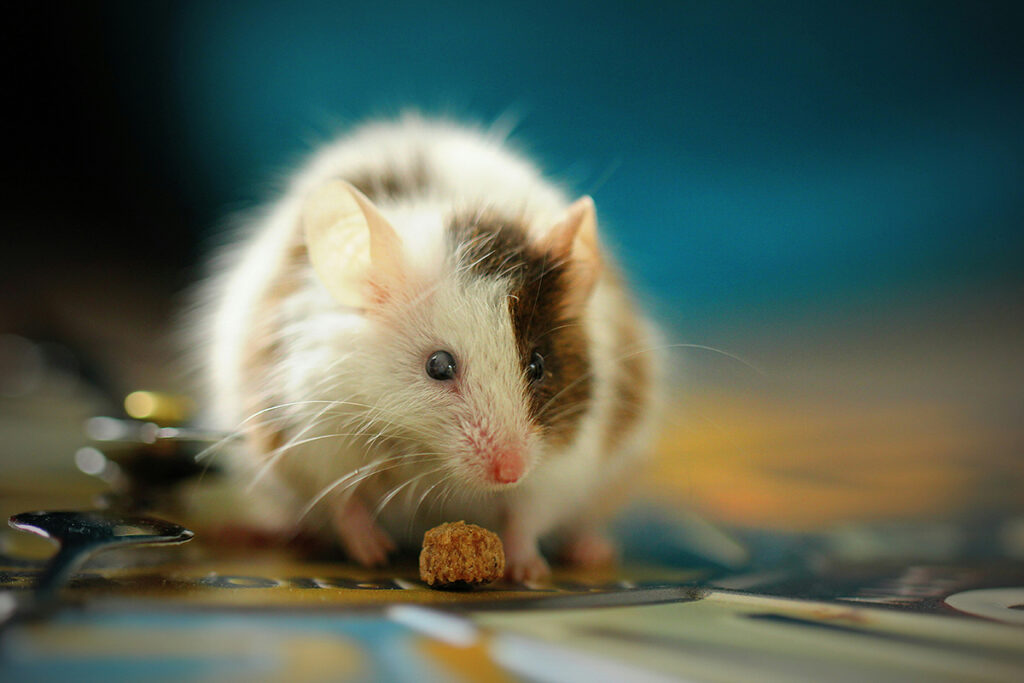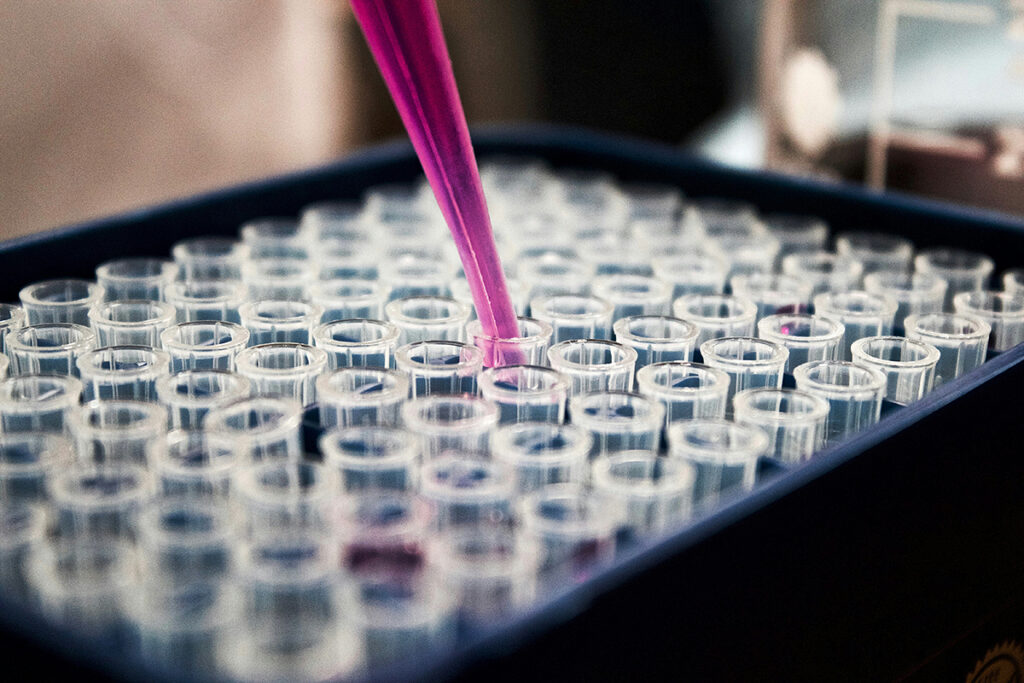By August 2020, there are more than 17 million cases of COVID-19 and more than 600,000 deaths worldwide. The majority of infected people have a mild or asymptomatic form of the disease. However, the percentage of severe cases and deaths from COVID-19 is higher than for seasonal flu.
Doctors and scientists around the world are conducting hundreds of clinical trials of existing antiviral drugs to find effective treatments for the new disease. The results are still difficult to estimate as successful, and the search for treatment methods continues.
Iranian doctors have studied interferon beta-1a for the safety and effectiveness of COVID-19 treatment. This interferon has been useful in treating patients with previous coronavirus epidemics: SARS-CoV, MERS. Interferons-beta have high antiviral activity and reduce the leakage of blood components through the walls of blood vessels during cytokine storm.
Study design
For a randomized clinical trial, 42 patients were selected for the test group and 39 for the control group.
All patients were over the age of 18. The percentage of men was 54%. The average age of men is 56 years, women-59. Both groups had similar comorbidities: arterial hypertension (38,3%), cardiovascular diseases (28,4%), diabetes (27,2%), endocrine disorders (14,8%), cancer (11,1%). The main complaints of patients: cough, fever, shortness of breath.
Patients in the control group received standard treatment: hydroxychloroquine (400 mg on the first day, followed by 200 mg), lopinavir/ritonavir (400/100 mg) or atazanavir/ritonavir (300/100 mg daily) for 7-10 days.
In addition to standard treatment, patients in the test group received a subcutaneous injection of interferon-beta-1a (12 million IU/ml) three times a week for two weeks.
Additionally, patients in each group were necessarily prescribed respiratory support, electrolytes, analgesics, antipyretics, corticosteroids, and antibiotics.
The duration of the study was two weeks, and the observation of patients lasted 4 weeks.
The primary outcome was evaluated by the duration of achieving a clinical response under a scale of conditions: discharge (1), hospitalization without oxygen (2), admission with oxygen (3), hospitalization with non-invasive positive pressure ventilation (4), admission with invasive mechanical ventilation (5), and death (6). the Time to clinical response was counted in days needed to improve at least two points on the scale.
The secondary result was the length of stay in the clinical condition: artificial ventilation, hospital stay, stay in the intensive care unit, death within 28 days, side effects after administration of interferon, mortality from early (up to 10 days from the onset of symptoms) or late administration of interferon, complications during hospitalization.
Treatment strategy
Antiviral treatment regimens were similar in both groups. In Iran’s national Protocol for the treatment of COVID-19, the primary drug is hydroxychloroquine. In severe cases, additional therapy is performed: lopinavir/ritonavir or atazanavir/ritonavir.
Prevention of deep vein thrombosis was performed for all patients according to indications. According to clinical signs, azithromycin, intravenous ascorbic acid, antibiotics, intravenous immunoglobulin, or corticosteroid may be added to antiviral regimens.
Corticosteroid (methylprednisolone, hydrocortisone, or dexamethasone) received 61,9% of the patients in the test group. Control group – 43,6%.
35,7% of patients in the test group received intravenous immunoglobulin. Control group – 25,6%.
Result
On the 14th day of the study, 66,7% of patients from the test group were discharged. In the control group, only 43,6%.
It was also found that the early administration of the drug significantly reduced mortality. And late administration did not have a significant effect.
In both groups, secondary parameters did not differ statistically: the length of stay in the hospital, the length of stay in the intensive care unit, and the duration of artificial ventilation. Also, the frequency of organ failure did not differ. However, more patients were intubated in the test group.
28-day mortality in the test group was 19%, and 43,6% – for the control group.
In the test group, 19% of patients had short-term side effects: fever, myalgia, headache, severe agitation, and depression.
Conclusions
Interferons are natural cytokines that are produced in response to viral infections. Interferons activate macrophages to fight the virus. SARS-CoV-2 is capable of blocking interferon signaling pathways. Interferon-based drugs can revive the endogenous interferon production.
Early administration of interferon to patients with COVID-19 significantly reduced mortality and increased the frequency of discharge on day 14. Side effects from the systemic drug interferon are tolerable.



